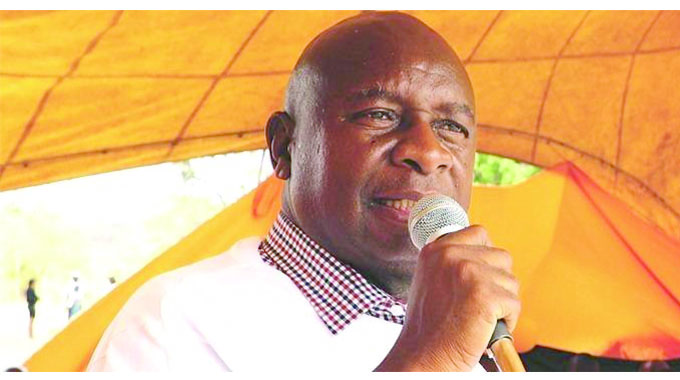Bullying and mental health issues in school

Rejoyce Sibanda, Chronicle Reporter
BULLYING, a common act of either intimidation or aggressive behaviour among school children, often taken lightly by societies, has played an active role in impacting various mental health challenges in learners.

It can be classified under both verbal and physical bullying. Verbal bullying involves insults and teasing while the physical aspect of it involves beating up and fighting.
Both cause harm of varying degrees from one person to the other. Bullies in learning institutions have the common goal of always wanting to show their powers and strength over others.
According to research, such learners have low self-esteem, are lonely, not confident enough and lack attention thus the reason for taking all their frustration on others.
Those that are bullied suffer from a lot of emotional turmoil and they nurture so much bitterness, anger and the need to revenge within them.
While some have blamed the upbringing of children as a factor that influences such behaviours, others have put it on learners copying it from the media and other influential platforms at their disposal.
Bullying in schools is responsible for causing mental health challenges such as anxiety, depression, lack of confidence and stress among others. It has seen some learners fearing, dreading and quitting school.

depression
It manifests in the very early stages such as preschool, proceeds to primary, secondary and even tertiary institutions such as universities.
One might wonder how bullying starts in preschool. Well, there are cases where a child is bullied by means of always having their toys snatched by other children, pushed around and even beaten.
However, such bullying in preschools is not as serious as the one found in advanced stages such as in primary and secondary schools where learners have an idea and understand what they are doing.
In preschools, pupils barely know what they will be doing and do not have any harsh intentions accompanying the act because these are just children.
Things start getting a little bit serious at primary school when learners are now kind of well-versed in what they are doing. The “good” part about bullying at this stage is that the mental health challenges are not as serious.
For example, in primary schools, bullying is based on the petty things that children pick up because of mostly their immature stage. Things like getting bullied because one is short or tall or whether they are intelligent or not.
The most painful bullying among learners happens in secondary schools. This is when we have seen most of young people dropping out of school, committing suicide, killing each other, abusing drugs, being depressed, stressed, faced with anxiety and being involved in a lot of social ills.

drug abuse
Secondary schools host the most critical bullying that hugely affects learners. Most of these young people that bully others are mature enough; they know very well what they are doing and have various intentions regarding the act.
It has even gotten to the extremes when secondary school learners consider bullying as something cool that makes them feel good every time they do it.
In high school, one is bullied for being a new pupil, having albinism, being light or dark-skinned, being tall or short, poor or rich, religion, belonging to a famous group or not, being intelligent or a slow learner and just to prove power to other children.
Moreover, those with strength and bigger bodies bully those who are weaker and with smaller bodies. Those of high status give a hard time to those of a lower one.
Many violent cases have been and are still happening in high schools where pupils beat up and fight each other. Another form of bullying is when learners steal, hide or damage another learner’s belongings such as stationery, food and school bag among others.
The sad part raised by some teachers is that most learners do not come forward and report bullying.
A teacher at a local secondary school who refused to be named said learners fear each other and thus they do not report when they are threatened.
She said this exposes the learner to continuous bullying which wounds them academically, socially, physically and mentally.
This is why some have tried to drive away the pain of being bullied through drug and substance abuse, suicide, murder and dropping out of school.
*Mary (17) says she was bullied when she started school at a local secondary school and this made her lose all her confidence and avoided going to school gatherings such as the assembly.
She says she was bullied by a group of famous girls of her age that was liked by almost every pupil in the school.
“Those were just the worst days of my life. While other children were having the time of their lives at school, I was always having suicidal thoughts because I would always be teased about my physical appearance. I even got a nickname that everyone in the school would call me by. I would even dread waking up in the morning for school because thinking of all the horror that I went through would just depress me,” she said.
Mary said the moment she got to the school premises at around 7am, she would already wish that the day was over and was finally going home to be free from all the bullying and the negativity.
She said she would sit alone by the school benches during break and lunch time and watch other children enjoy being at school.
“Mine was both verbal and physical bullying that included being insulted, spat on, pushed and kicked, having some of my school belongings taken away, I would find my bag dirty on the classroom floor with my books all over, some even torn. The group of girls would spread lies about me and make the other pupils hate me for no reason and so I had no friends,” said Mary.
She told Chronicle that this affected her so much that she started faking illness so that she would not go to school and that it continued until she finally quit school at the beginning of her Form Two.
Mary said the efforts of her guardian to send her back to school were in vain as she started selling airtime at home and never looked back.
She said despite it all, she is slowly learning how to regain her confidence and recover mentally.
The community, parents, and guardians have a role to play in being observant of their children’s behaviours and lifestyles so that if there is any change, they can pick it up and allow their children to open up about issues affecting them.
This will go a long way in addressing issues of bullying where bullies are identified and dealt with while victims get all the emotional support they need to recover.
Primary and Secondary Education Deputy Minister Edgar Moyo recently warned against bullying in schools.
He said the Government expects school authorities to protect learners from bullying.
“We are expecting a lot of new pupils from Early Childhood Development and the Form One classes. For them, it’s a new experience and we expect schools to allow those learners to settle well. Those who are into bullying, we want to warn them that the ministry will not tolerate such conduct. Some schools have made it their culture to bully new pupils which is not permitted because we want all the learners to feel safe,” said Deputy Minister Moyo. –@ReeSibanda












Comments